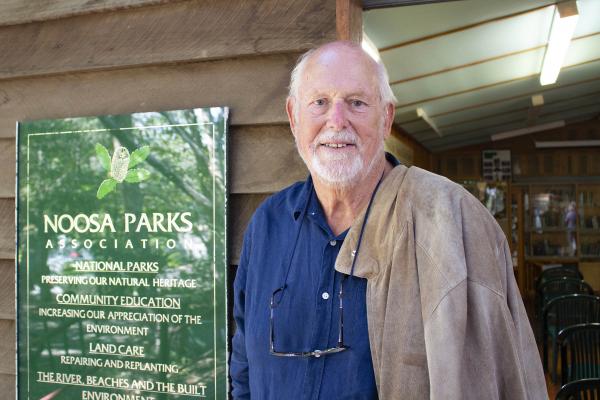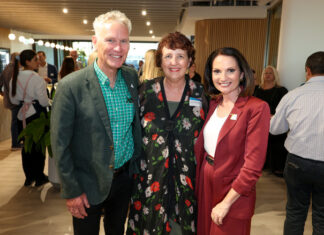Professor Richard Bawden has spent decades telling people to take a world view about farming that he believes has been as successful as “teaching ravens to fly underwater”.
At a recent Friday forum at Noosa Parks Association Prof Bawden told the audience having a world view relates to the way people see and value the world.
Prof Bawden grew up in Cornwall on his family’s 100 hectare mixed farm, “the way farming had gone for hundreds of years”. It was a farm of small fields divided by hedges that produced a variety of animals including sheep, cattle, pigs and poultry sold at the local market in a country that valued singing, storytelling and art.
He said it was hard work and not particularly productive.
After school Prof Bawden went to university to study agriculture where the emphasis was on intensive farming using highly mechanised methods, pesticides and fertilisers.
“So much grain was produced they couldn’t sell it, they had to feed it to animals and poultry. Farming was completely different from what I’d been brought up with,” he said. “There was no connection between nature and the market.“
Prof Bawden said from 1950s to 1980s Australian farming was focused on farming intensification. Farmng in Australia is a vulnerable industry with the small margins farmers receive and increasing costs of production a farmer has to increase yield five per cent each year to meet costs, he said.
Intensive farming has altered the life of the farmer, the connection between farms and the market, and the view of rural life.
As farms became more mechanised the need for people reduced. Residents moved to the cities for work and the connect between farms and markets decreased. As people lost touch with the land, the quality or rural life declined, its political influence declined and problems such as suicide, drug and alcohol abuse and violence increased.
The environmental outcome of intensive farming has been degradation with land clearing, use of pesticides and use of water.
Prof Bawden was taught a lesson he didn’t forget on the results of intensive farming when he was invited by the UN to work in South America. After a year of thinking he was doing a good job increasing productivity he was driven to a remote location one day by colleagues who told him he was only making rich farmers richer and not helping the people who lived in neighbouring slums. He was given options to leave or start working on an inclusive program that benefitted everybody.
His work and studies led him to view agriculture in a more holistic way but raised the question of what to do now.
He said he looked for a way to bring three areas of study together – productivity, rural employment and quality of rural life, and environmental degradation. It required a change to the world view from one that had become so focused on productivity.
In 1981 he was tasked with setting a sustainable farming curriculum that included three elements – to be “ecologically sound, economically viable and socially just”.
It had wide-ranging implications particularly for financially-motivated groups such as seed companies, bioengineers, pharmaceuticals.
By 1994 it was shut down.
We changed the question to “what worldview is needed to be developed to promote the agenda of how we should live our lives“.
Prof Bawden said the world has come to look to science for the answers and while science is very important each study involves only one piece of the puzzle not the whole. It is based on putting forward a hypothesis and gaining evidence to prove it. “More fundamental questions are how do we deal with agriculture that deals with the integrity of the natural environment and rural life?” he said.
“We need to engage in empathetic, ethical, critical discourse to move forward,” he said.
Far from being disheartened that agricultural study has not shown a readiness to embrace a worldview Prof Bawden is excited about the future.
With plans to embark on a podcast with the University of the Sunshine Coast he aims to explore issues such as the role of universities, the curriculum and research in the industry.








